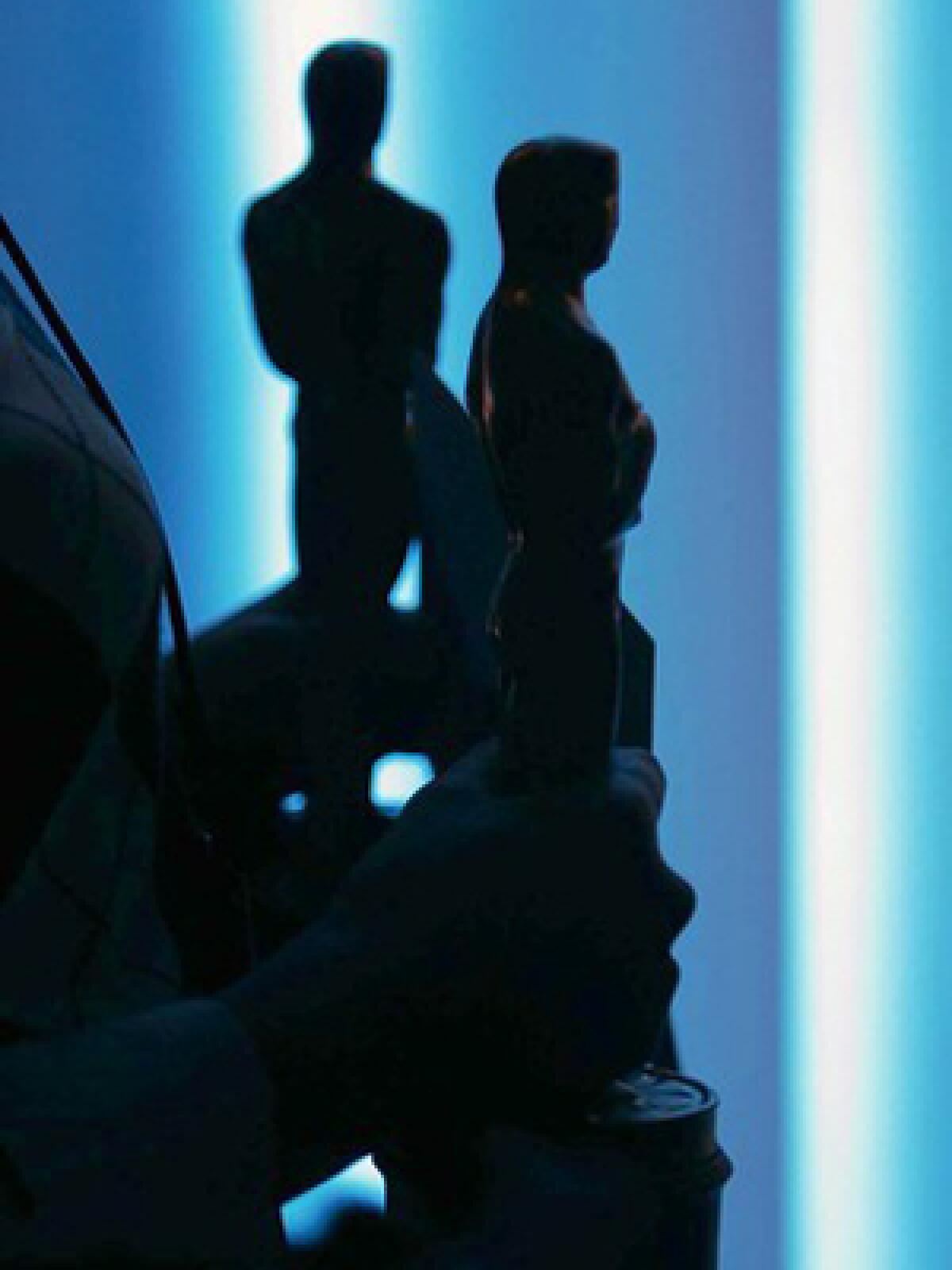Critic’s Notebook: Endless Oscar predictions, analysis take the fun out of the big night

- Share via
When it comes to the Oscars, both ways is the only way I want it.
That phrase isn’t mine — it’s the title of an exceptional short story collection by Maile Meloy and a line from an A.R. Ammons poem — but I’ve borrowed it because it expresses exactly how I feel about the Academy Awards, which finally take place Sunday after what seems like a lifetime of advertising, publicity and wire-to-wire prognostication.
On one hand, as an unabashed and unapologetic fan of the Oscars since I was a child in faraway Brooklyn, I’m happy to see the event bask in its moment in the sun.
And as someone who believes in the concept of quality mass entertainment (which can sound like something of an oxymoron these days), I was happy to have the list of best picture nominees expand to 10 last year in a successful ploy intended to get more people to care about the award. I was even happier this year to see the inclusion of deserving and popular films such as “Inception” and “Toy Story 3,” movies that might not have made the cut if only five films were selected.
What I am not so happy about is the orgy of forecasting, guesswork and entrails reading that goes on and on and on in the weeks and months preceding the big show, all in an attempt to figure out who is going to take home the prizes.
Blogs and websites almost without number engage in Oscar ruminations, as do magazines like Entertainment Weekly and, of course, newspapers. The Los Angeles Times has connections to at least three prize-oriented destinations (Awards Tracker, Gold Derby and The Envelope), while the New York Times has a dedicated column called The Carpetbagger devoted to red carpet doings.
With so many entrants, the race to be right can take some downright silly turns. I recently got an e-mail touting something called PeekScore, which claims to be “an innovative application that ranks individuals’ online prominence” and is also the long-awaited skeleton key to discovering “who will take home an Oscar.” Maybe actual entrails reading will be next.
Because the pressures to be early are greater than the obligation to take your time and be correct, these prognosticators can be easily misled. This is what happened when an early tide of critics group awards convinced everyone that “The Social Network” was the best picture favorite, a position that had to be changed once the actual nominations came out and it became clear that most-nominated “The King’s Speech” deserved that designation.
The problem with all this Oscar predicting, however, is not that the pundits are often wrong but, frankly, that they are often right. For the truth about the Oscars is that they are, to a large extent, predictable. The more academy votes and voters are studied, the more patterns emerge, the more identifiable signs and meanings become apparent, and the more the awards can be unceremoniously pinned to a board like a captured butterfly.
That’s because, though new members are admitted every year, only death takes voting privileges away, so the composition of the just fewer than 6,000-member group changes very slowly, if it changes at all. As a member said to me when he was in his mid-70s, “I like to go to academy screenings because it’s the only place in town where I can feel like a kid.”
More than that, no matter how old the voters are, it’s important to understand that the Academy Awards represent the likes and dislikes of a finite group of people with identifiable tastes that often transcend age. Study those for long enough, and it is possible to bore in on what they are apt to do.
So this year, for instance, several awards appear to be locked down solid. Because the academy appreciates British actors and because he was nominated last year for “A Single Man” but did not win, Colin Firth is the highly likely lead actor choice for “The King’s Speech.” Because there is a universal feeling that this is Natalie Portman’s moment, “Black Swan” will give her the lead actress award. Because showy performances are an academy weakness, Christian Bale will win the supporting nod. And so on into the night.
Of course, upsets are always possible. There’s always the chance that “The Social Network,” for instance, will upend “The King’s Speech,” but it’s unlikely. And knowing that, having all the ins and outs dissected ad infinitum well before the fact, takes a certain amount of fun out of Oscar night itself, which has to be a shame.
Harvey Weinstein, of all people, once told me that as a younger man he’d snuck behind the scenes of a major magician’s stage show and figured out how all the big, elaborate tricks and illusions were done. He was driven to find out the answers, but once he knew them, he felt let down.
That’s how I feel about the never-ending parade of pre-event Oscar dissection. I know that genie is never, ever going back into the bottle, but part of me, the part that remembers being young, innocent and full of eager anticipation back in Brooklyn, wishes that it could.
More to Read
The biggest entertainment stories
Get our big stories about Hollywood, film, television, music, arts, culture and more right in your inbox as soon as they publish.
You may occasionally receive promotional content from the Los Angeles Times.











